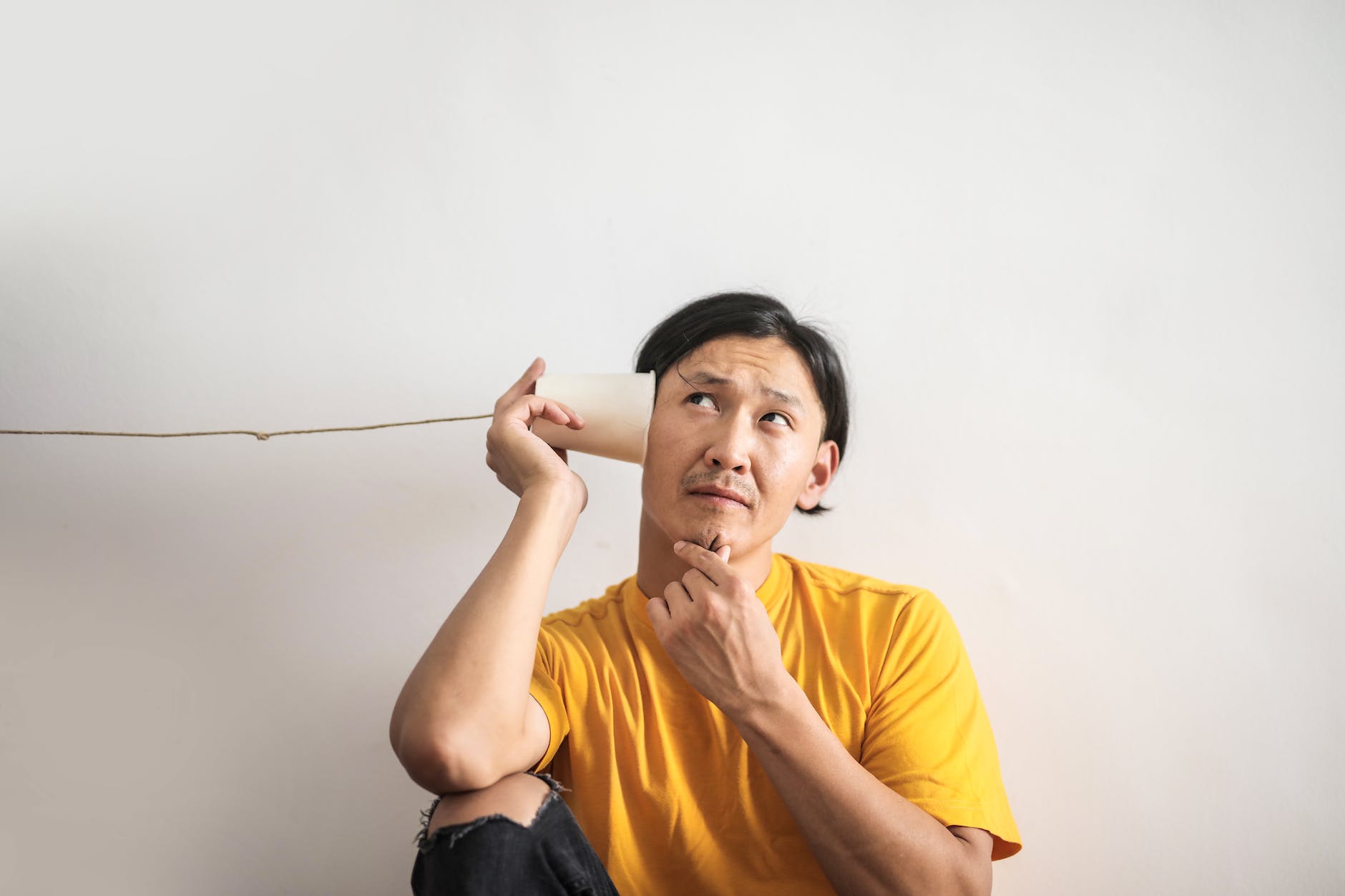THOUGHTS, IDEAS, QUESTIONS, PROCESS, LESSONS,
Student Post
ARE YOU LISTENING?
PAUL ROBINSON – Week 2
Personal Journal entry
We were at a workshop at the Loose Moose, doing the variation of “Yes, Let’s” where you sit down if you don’t feel inspired. We spent about forty minutes, and I think the furthest we got was seven suggestions. Great for learning, but not for playing, I spent most of that time sitting. But when we got to open scenes for the last twenty minutes, I felt a tolerable, but very unpleasant, panic. It rested along the bottom of my stomach like a diver’s weight belt.
 When I began improvisation more than a decade ago, that felt like a ‘give-up’ signal. And I did give up. I felt like I was putting in a lot of effort, but I failed to connect to anyone. I couldn’t figure out how to have fun even though I desperately wanted to. So, after about a year and half I just quit. I felt I didn’t belong.
When I began improvisation more than a decade ago, that felt like a ‘give-up’ signal. And I did give up. I felt like I was putting in a lot of effort, but I failed to connect to anyone. I couldn’t figure out how to have fun even though I desperately wanted to. So, after about a year and half I just quit. I felt I didn’t belong.
But even then, I still felt a pull. Like a comet orbiting a star (or maybe a black hole), as I careened through life I was pulled towards improvisation. So, I tried again. But this time, something was different. In the year and a bit off, I’d worked through a lot and spent a lot of time reading. I could play and connect. I made some real friendships, had a couple great shows (and a lot of mediocre ones), and started to explore what it meant to be an improviser.
I still felt that panic resting on the bottom of my stomach, though. I had become something of a masochist; at the first sensation of fear I would throw myself onto the stage. Sometimes it would flip from distress to eustress* (‘bad’ stress to ‘good’ stress) and it would be fun; other times it would gently fade away; and in the worst cases it acted like a clamp on my gut, giving me instant tunnel vision.
(Then I went to China, and was teaching for two years without performing [in retrospect a mistake]. Then, I took a break from improvisation while I rehabilitated some muscular problems [I really wanted to learn more about physical theatre but I had a lot of pain]. Then covid struck, and I lost my way for a while.)
So, what did I do this time? Instead of taking the feeling as a ‘fear’ signal, or to amp myself up to run on stage, I rested with the feeling. I asked it where it came from, but it was a little shy. I asked what made it feel tighter or looser. Eye contact with the teacher made it tighter, but cycling eye contact (what wild animals do when they see a new creature) made it loosen a bit. I didn’t figure much else out this time, so I just sat with myself. Next time I feel it, I will ask again, and see if there is anything it needs to hear.
Weekly Reflection
The teaching theme this week was, “Are you listening?” We spent time on clown work and narrative. The common ground for performers in both? We use artifice to defend ourselves from authenticity and vulnerability.
In narrative, that frequently means gutting relationships for a gag. For example,
1: “It pains me to say this, but I think we need a divorce.”
2: “That’s the sixth time you’ve said that this week!”
Inevitably there will be some laughter in the audience, and the second person may feel superficial validation for getting the laugh. By refusing to acknowledge the first person’s confession, though, the second person has rejected their own emotional reaction and their connection to the first person. If the second person really listens to their partner and reacts, they create an authentic emotional moment, and demonstrate the vulnerability of truly not knowing where the scene will go.
So how can we dismantle this defensiveness in ourselves and others? Connect with your partner* and acknowledge what is already present. “You’re trying to find problems,” Shawn said, “Let the problems find you.” In a game of “I’ve got a better idea,” I started a silly rant so that one of my partners would tag me out. In a sense, I wasn’t really playing the game, I was ‘overplaying.’ I wasn’t listening to myself. I used the rant to avoid being vulnerable because I didn’t know what to say.
 In the clown scenes, many of us had a pattern of ‘making something up’ while ignoring what was happening. I was unrolling a piece of tape, and I kept trying to find different ways to rip it. The scene was stuck. When I listened to the pleasant cracking as it unrolled and reacted to that, the scene moved. In Shawn’s words: “be an honest clown instead of a presenting clown.” Stress makes it harder for us to perceive our environment. The corollary is true, too: perceiving our environment makes it easier for us to savour stress.
In the clown scenes, many of us had a pattern of ‘making something up’ while ignoring what was happening. I was unrolling a piece of tape, and I kept trying to find different ways to rip it. The scene was stuck. When I listened to the pleasant cracking as it unrolled and reacted to that, the scene moved. In Shawn’s words: “be an honest clown instead of a presenting clown.” Stress makes it harder for us to perceive our environment. The corollary is true, too: perceiving our environment makes it easier for us to savour stress.
*keep in mind you always have a partner. Even when you are alone, you are partnered with your environment. The conscious self is partnered with the unconscious self. The great contact improviser Steve Paxton once said something like: at the very least, you are always in a duet because you dance with gravity.
Sidenote: why are we obsessed with duality? There was a biologist who suggested it’s because we’re bilaterally symmetrical. Would improvising starfish always be talking about quintets?




0 Comments